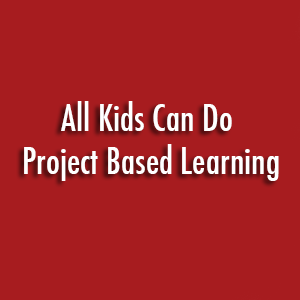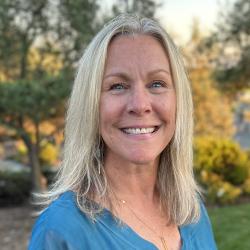 Back in March, John Larmer, John Mergendoller, and Suzie Boss enhanced the Buck Institute’s original Project Based Learning (PBL) framework, highlighting essential elements that lend themselves to deeper learning. Many of the original pieces are there, but this new model, Gold Standard PBL, gives equal billing to reflection as an important part of the PBL experience. While students have always been encouraged to reflect throughout PBL, I think its appearance on the Gold Standard Design graphic serves as a reminder for all of us when we are facilitating student learning.
Back in March, John Larmer, John Mergendoller, and Suzie Boss enhanced the Buck Institute’s original Project Based Learning (PBL) framework, highlighting essential elements that lend themselves to deeper learning. Many of the original pieces are there, but this new model, Gold Standard PBL, gives equal billing to reflection as an important part of the PBL experience. While students have always been encouraged to reflect throughout PBL, I think its appearance on the Gold Standard Design graphic serves as a reminder for all of us when we are facilitating student learning.
So, with that in mind, I would like to reflect on our initial exploration of PBL as a vehicle to engage students with disabilities as we prepare them for career, college, and civic life. While not all students with disabilities will attend a traditional college, they all will experience a post-secondary life that will include academics, advocacy, and accomplishment. Last year, a group of exceptional educators embarked on a journey with me that would change the way we look at instruction; these teachers decided that PBL offers an approach that leads students toward a life after high school where content knowledge is just one aspect of the whole adult. There is so much more that our students require when they leave us. Mr. Larmer, Mr. Mergendoller, and Ms. Boss, in Setting the Standard for Project Based Learning, discuss the acquisition of “Success Skills” as an integral part of learning. It is this emphasis on critical thinking, collaboration, and self-management that provides even more opportunity for our students with disabilities as they strive toward independence in their post-secondary life.
Last year, we deemed that all kids “CAN PBL” when Onondaga-Cortland-Madison NY (OCM) BOCES students in 12:1:1 and 12:1:4 classes grew a community garden, created and distributed leisure activity brochures, fed the homeless, and educated fellow staff and teachers about autism. Others utilized technology to communicate the importance of animal habitats to zoo visitors, staffed a diner for fellow classmates, created posters promoting a balanced diet for the school cafeteria, and prepared families for a natural disaster. That is just some of what our students with disabilities accomplished in a few short months. It is important to note, however, as
John Dewey stated, it’s not the experience, it’s the “reflection on experience” (1938) that elevates us to that metacognitive platform.
To honor reflection as a part of the learning process, I invited the teachers involved to share in a “fishbowl” protocol. As I listened from the perimeter, the teachers spoke about what their students learned and the nature of transfer, a result of deep learning. Students were making content connections for days, even weeks, after products were shared with the public! As the reflection continued, the teachers recalled collaboration among students who were so prone to parallel play in the traditional teaching environment. Now, those students accomplished tasks as a team and celebrated together. They looked into each other’s eyes and handed items back and forth, a feat that can be difficult for some children with disabilities. They helped each other if someone struggled. As the reflection continued, teachers shared how their students, so often marginalized and forgotten, became advocates through this experience. They became problem solvers, helpers, makers…
Reflection leads to planning next steps; so with this in mind, I look forward to year two. I look forward to supporting teachers as they design projects intent on facilitating academic proficiency and promoting advocacy while providing opportunity for rigorous inquiry for all of our students. And when those students have learned, they can revel in their accomplishments as they prepare for post-secondary life.
Do you have questions, advice, or stories to share about using PBL for students with disabilities or in Special Education? Please make a comment below!

